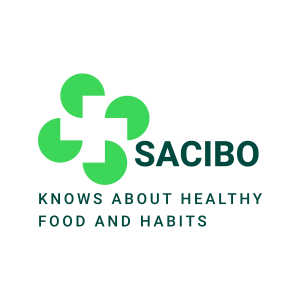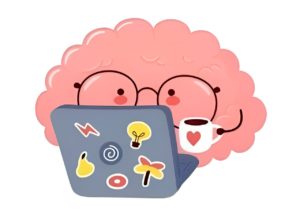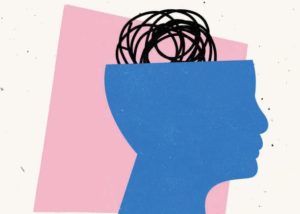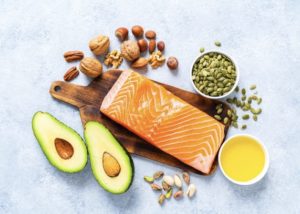- Home
- /
- Lifestyle
- /
- Deleterious Healthy Life Style
- /
- Deleterious Healthy Life Style
In today’s fast-paced world, striking a balance between health and indulgence can be a daunting task. The concept of a “healthy lifestyle” has become increasingly ambiguous, leaving individuals confused about what choices to make. While many strive to lead a healthier life, some fall prey to the traps of an deleterious healthy life style. This paradoxical behavior involves adopting seemingly beneficial habits that, when taken to extremes or pursued without proper understanding, can have detrimental effects on our overall well-being. In this article, we will explore various aspects of the unhealthy healthy lifestyle and its potential impact on our physical, mental, and social health.
Unraveling the Paradox
The Rise of the Unhealthy Healthy Lifestyle
The advent of social media and an abundance of health and wellness influencers have popularized the notion of a healthy lifestyle. People are bombarded with images of toned bodies, trendy diets, and intensive workout routines, promoting the idea that perfection can be attained through relentless discipline. Consequently, the desire to embrace a healthy lifestyle has led some individuals to adopt extreme measures, often bordering on obsession, which can lead to adverse consequences.
The Dangers of Over-Restrictive Diets
One hallmark of the unhealthy healthy lifestyle is the tendency to adopt overly restrictive diets. While certain dietary choices, such as veganism or gluten-free diets, can offer health benefits to specific individuals, adhering to these diets without proper planning and understanding can lead to nutrient deficiencies and adverse health effects. Restricting oneself to a narrow range of foods may deprive the body of essential nutrients, potentially leading to malnutrition, weakened immunity, and eating disorders.
About diets read here: Decoding Diets: A Short Guide
Exercise Addiction and its Consequences
Physical activity is a cornerstone of a healthy lifestyle, but when exercise turns into an addiction, it can have severe repercussions. Exercise addiction, also known as “compulsive exercise,” involves an unhealthy obsession with working out and an inability to take rest days. This overexertion can lead to physical injuries, chronic fatigue, hormonal imbalances, and an increased risk of mental health issues such as anxiety and depression.
The Mental Health Toll
The pursuit of a perfect healthy lifestyle can also take a toll on mental health. The pressure to adhere to unrealistic standards of wellness and body image can lead to body dysmorphia, self-esteem issues, and even eating disorders like orthorexia nervosa (obsession with healthy eating). Constant comparison to others’ seemingly flawless lives on social media can exacerbate feelings of inadequacy and anxiety.
How to be more efficient read here: How to keep high level of energy
Social Isolation and FOMO
The unhealthy healthy lifestyle can lead to social isolation as individuals become consumed by their rigid routines. Turning down social events that don’t align with their health goals can result in a fear of missing out (FOMO) and lead to a sense of loneliness. Maintaining a balanced social life is essential for overall well-being and can positively impact mental health.
Striking a Balance: Embracing Moderation and Individuality
To break free from the unhealthy healthy lifestyle trap, it is crucial to emphasize moderation and individuality. Recognize that each person’s body and needs are unique, and what works for one individual may not work for another. Embrace a flexible approach to diet and exercise, allowing occasional indulgences without guilt. Finding a balance between healthy choices and occasional treats is key to sustainability and long-term well-being.
Get known how to find balance with meditation in this article: The Transformative Power of Meditation
Building a Healthy Relationship with Food and Exercise
Developing a healthy relationship with food involves mindful eating, listening to hunger cues, and honoring the body’s needs. Understanding that no single diet fits all, and seeking advice from healthcare professionals or registered dietitians can help in creating a personalized and balanced nutrition plan.
Likewise, fostering a healthy relationship with exercise means enjoying physical activities that bring joy and contribute to overall fitness without becoming an obsession. Varying workout routines and incorporating rest days are vital for preventing burnout and injuries.
How to formate healthy habits read here: The Science of Healthy Habits Formation
The unhealthy healthy lifestyle presents a paradox that can have a significant impact on our physical, mental, and social well-being. Striving for perfection in health can lead to detrimental consequences when taken to extremes without a balanced perspective. Embracing individuality, moderation, and mindfulness can liberate us from the confines of the unhealthy healthy lifestyle and allow us to lead truly fulfilling lives. Remember, health is not just about what we do, but how we feel and the happiness we experience along the way.
Where is a gold middle
In the midst of the paradoxical world of the unhealthy healthy lifestyle, lies the elusive gold middle ground that represents the delicate balance between embracing a healthy lifestyle without falling into the traps of extremism. Just as in life, where finding the middle path often leads to a more content and harmonious existence, the same holds true for our approach to health and wellness.
Striving for the gold middle in the context of health means recognizing that perfection is an unattainable myth. Rather than succumbing to the pressure of adhering to rigid diets and relentless exercise routines, we should prioritize holistic well-being. This involves considering not only the physical aspect but also mental and emotional wellness. When we shift our focus from chasing the idealized image of health to nurturing a sustainable and compassionate relationship with our bodies, we set the stage for a healthier and happier life.
What is food in the gold middle
In the gold middle, food is not just fuel for the body, but a source of enjoyment and nourishment. Embracing a diverse and balanced diet, rich in whole foods, allows us to experience the pleasures of eating without guilt or anxiety. It encourages mindful eating, where we savor each bite and listen to our body’s cues, promoting a healthier relationship with food.
What is sport in the gold middle
Similarly, the gold middle acknowledges that exercise is essential for vitality but emphasizes quality over quantity. Engaging in physical activities we genuinely enjoy, whether it’s dancing, hiking, yoga, or team sports, brings joy and fulfillment to our lives. This approach to exercise is sustainable in the long run and reduces the risk of overtraining and burnout.
Perfect imperfection
The gold middle also recognizes that our bodies are unique, and there is no one-size-fits-all approach to health. What works for one person may not work for another. Embracing our individuality allows us to honor our bodies’ needs and make choices that are best suited to our lifestyles and preferences.
Moreover, finding the gold middle means embracing imperfection and accepting that setbacks and indulgences are a natural part of life. Instead of feeling guilty about occasional “unhealthy” choices, we should celebrate our ability to strike a balance between nourishing our bodies and occasionally indulging in treats that bring us joy.
The gold middle within the realm of the unhealthy healthy lifestyle is a place of harmony and self-compassion. It encourages us to break free from the constraints of extreme health pursuits and instead embrace a balanced, flexible, and individualized approach to well-being. By seeking the gold middle, we can create a healthier, happier, and more fulfilling life, free from the burdens of perfection and rigidity. Let us remember that true health and wellness encompass not just our physical bodies but also our mental and emotional well-being, and it is in this middle ground that we can truly thrive.
Another way is to find what is your
Finding what is truly yours is an empowering and introspective way to navigate the complexities of the unhealthy healthy lifestyle. In a world inundated with fad diets, fitness trends, and societal pressures, discovering what resonates with your unique self can be the compass that guides you towards genuine well-being.
Get known how to hear yourself read in this article: The Transformative Power of Meditation
Uncover the roots of your intentions
Understanding your personal values, preferences, and goals is the cornerstone of this approach. It involves taking the time to reflect on what truly matters to you in terms of health and happiness. Consider your motivations for wanting to lead a healthy lifestyle. Is it for appearance, societal approval, or a genuine desire to feel better and live life to the fullest? By uncovering the roots of your intentions, you can better discern whether your choices align with your authentic self.
Freedom of customization
Instead of trying to fit into a predetermined mold of health, embrace the freedom of customization. Your ideal healthy lifestyle may not mirror the latest fitness influencer or the current wellness trend, and that’s perfectly okay. It’s about finding activities, foods, and habits that bring joy and fulfillment to your life rather than adhering to a rigid set of rules.
Body response
Embrace experimentation as you embark on the journey of self-discovery. Try out various forms of physical activities, explore different cuisines, and be open to new experiences. Pay attention to how your body and mind respond to these changes, noting what makes you feel energized, content, and at peace.
Additionally, listening to your body’s signals is crucial in finding what is right for you. Our bodies communicate their needs and limitations, and tuning in to these signals can help you make informed choices. Learn to distinguish between physical hunger and emotional cravings. Recognize when your body needs rest and when it craves movement. By respecting these cues, you can develop a nurturing relationship with your body that fosters long-term well-being.
Supportive community
Surround yourself with a supportive community that embraces individuality and diverse perspectives. Engage in conversations that challenge conventional norms and celebrate the uniqueness of each individual’s journey to health. Building connections with like-minded individuals can provide encouragement and reinforcement as you explore what is truly yours.
Remember that the path to discovering what is yours is not linear or static. It is an ongoing process of self-awareness and growth. Your preferences and priorities may evolve with time, and that is completely natural. Embrace change with an open mind and heart, knowing that your journey towards well-being is a personal and transformative one.
Role of Genetics
Genetics, an intrinsic and unique aspect of each individual, plays a significant role in the realm of the unhealthy healthy lifestyle. While it is true that genetics can predispose certain individuals to specific health conditions and traits, understanding and embracing this aspect of our biology can be a powerful remedy in navigating a personalized path towards well-being.
About genes of over-weight people read here: The gene of overweight people: The weight loss strategy
Genetics and eating
Through advancements in genetic research, we now have access to insights into our genetic makeup, unlocking a wealth of information about our bodies’ inherent tendencies. Genetic testing can reveal valuable information about how our bodies metabolize nutrients, respond to exercise, and even process certain medications. Armed with this knowledge, we can tailor our approach to health and wellness, making choices that align with our unique genetic predispositions.
For instance, some individuals may discover that they have a higher sensitivity to certain foods, making it essential to avoid specific allergens or intolerances. Others may have a genetic propensity for slower metabolism, requiring a personalized dietary plan to maintain a healthy weight. Understanding these genetic factors can help individuals make more informed choices, optimizing their health outcomes.
Genetics and sport
Moreover, genetics can influence an individual’s response to different types of exercise. Some people may be more predisposed to excel in endurance-based activities, while others may have a greater aptitude for strength training. By recognizing these inherent strengths, individuals can tailor their exercise routines to suit their genetic profiles, optimizing the benefits they derive from physical activity.
Embracing genetics as a remedy also involves adopting a compassionate approach towards ourselves. Genetics is not a blueprint set in stone but rather a map that guides us on our journey to health. It reminds us that we are all unique and that comparison to others is futile. By accepting our genetic predispositions and embracing our individuality, we can avoid falling into the traps of the unhealthy healthy lifestyle, where the pursuit of someone else’s ideals can lead to dissatisfaction and frustration.
Genetics and personalized medicine
Genetics also holds promise in the field of personalized medicine. With the advancement of pharmacogenomics, healthcare providers can use genetic information to tailor medication choices and dosages for individuals, reducing the risk of adverse reactions and improving treatment outcomes.
However, it is crucial to remember that genetics is just one piece of the puzzle. While it provides valuable insights, it does not dictate our destiny. Lifestyle factors, such as diet, exercise, stress management, and sleep, continue to play a significant role in our overall well-being.
Genetics serves as a powerful remedy in the realm of the unhealthy healthy lifestyle. By understanding and embracing our unique genetic makeup, we can make informed choices that align with our bodies’ inherent tendencies. It empowers us to personalize our approach to health and wellness, avoiding the one-size-fits-all mentality and embracing our individuality. Ultimately, genetics reminds us that we are all beautifully distinct, and our journey to well-being should be as unique as we are.
Genetics not everything what we have
Epigenetics, a groundbreaking field of scientific research, plays a fascinating and influential role in shaping our health and well-being within the context of the unhealthy healthy lifestyle. Epigenetics refers to changes in gene activity that do not involve alterations to the DNA sequence itself but can be influenced by environmental factors, lifestyle choices, and even emotions. Understanding the impact of epigenetics sheds new light on our ability to take control of our health and make positive changes in our lives.
We have a choice
One of the most captivating aspects of epigenetics is its ability to showcase the intricate interplay between nature and nurture. While genetics provide us with a blueprint of our inherited traits and tendencies, epigenetics demonstrates that our environment and lifestyle choices have the power to modify how our genes express themselves. This remarkable phenomenon means that we are not passive recipients of our genetic destiny; rather, we have the potential to influence our gene activity and, in turn, our health outcomes.
The influence of epigenetics on the unhealthy healthy lifestyle is profound. Unhealthy habits, such as poor diet, lack of exercise, chronic stress, and exposure to environmental toxins, can lead to epigenetic modifications that increase the risk of various health conditions. On the other hand, adopting healthy behaviors can trigger positive epigenetic changes that promote well-being and resilience.
Our decisions matter
Epigenetics has been linked to numerous health conditions, including obesity, cardiovascular disease, diabetes, and cancer. It highlights the importance of making informed choices about our diet and lifestyle, as these decisions can influence not only our immediate health but also the health of future generations. Studies have shown that epigenetic changes can be passed down to offspring, creating a ripple effect that extends beyond our own lifetimes.
The exciting aspect of epigenetics is that it offers hope and empowerment. It shows us that we have the potential to reverse harmful epigenetic modifications by adopting healthier habits and environments. For example, engaging in regular physical activity, consuming a balanced diet, and practicing stress-reduction techniques like meditation can positively influence our gene expression, potentially reducing the risk of chronic diseases.
We can affect on mental health too
Furthermore, the role of epigenetics extends beyond the physical realm. Emerging research suggests that epigenetic changes can impact mental health and cognitive function. Chronic stress, trauma, and adverse childhood experiences have been associated with epigenetic alterations that may contribute to mental health disorders. Recognizing this connection underscores the importance of nurturing a supportive and positive environment for mental well-being.
Epigenetics also underscores the importance of a lifecycle approach to health. The choices we make during crucial periods, such as pregnancy and early childhood, can have lasting effects on gene expression and future health outcomes. By prioritizing prenatal care, providing a nurturing environment for children, and supporting healthy development, we can set the stage for a lifetime of well-being.
On the path of genuine health and happiness
The paradox of the unhealthy healthy lifestyle serves as a stark reminder that balance and individuality are the keys to authentic well-being. While the pursuit of a healthier life is commendable, falling into the traps of extreme behaviors, rigid rules, and comparisons can lead us astray from the path of genuine health and happiness.
It is essential to recognize that health is not a one-size-fits-all concept. Each person’s body, genetics, and life circumstances are unique, and what works for one individual may not work for another. Embracing our individuality and understanding our genetic predispositions can empower us to make informed choices that resonate with our authentic selves.
The journey towards well-being should be characterized by self-compassion, curiosity, and an openness to evolving over time. Instead of seeking perfection, let us strive for progress, embracing the beauty of imperfection and the lessons learned along the way.
In the end freedom is value
Let us break free from the pressure of adhering to unrealistic standards and trends, understanding that true health encompasses not just the physical aspects but also mental, emotional, and social well-being. Cultivating positive habits that nourish our bodies, minds, and souls, while also allowing room for indulgence and joy, is the path to sustainable health.
In this modern age, where information is abundant and trends come and go, let us anchor ourselves in the principles of balance, mindfulness, and self-awareness. By finding what is truly ours, honoring our bodies’ needs, and recognizing that well-being is a lifelong journey, we can liberate ourselves from the unhealthy healthy lifestyle trap.
Conclusion
Ultimately, the pursuit of health should be a joyful and enriching experience, filled with self-discovery, growth, and connection. Embrace the power of the gold middle, listen to the whispers of your genetics and epigenetics, and embark on a journey towards a truly thriving and authentic life. May we find solace in the wisdom of our bodies, embrace our uniqueness, and cultivate habits that nourish not just our physical form but our souls as well.
































































0 Comments